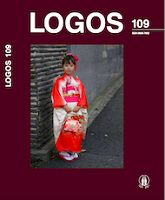Koraniškoji Sa’ada (laimė) Miskavaihio ir Al Gazalio filosofinėse koncepcijose
Qur'anic Sa'ada (happiness) in the Philosophical Concepts of Miskawayh and Al-Ghazālī
Author(s): Ina Kiseliova-El MarassySubject(s): Ethics / Practical Philosophy, Middle-East Philosophy, Philosophy of Religion, Qur’anic studies
Published by: Visuomeninė organizacija »LOGOS«
Keywords: sa'ada; happiness; Miskawayh; Al Ghazālī; classical Arabic philosophy; comparative philosophy;
Summary/Abstract: The article briefly discusses the concept of sa'ada (happiness) in the classical Arabic philosophy. The article traces the Hellenistic roots of the concept and its Qur'anic foundation and transformations in the context of moral philosophy. The viewpoints of two most relevant Arab thinkers are considered: Ibn Miskawayh (932–1030) one of the most influential founders of Arabic philosophical ethics and Al Ghazālī (1058–1111) the author of a distinctive and medieval philosophical, ethics and theology. The paper sheds the light on the influence of multicultural understandings of happiness on the pre-Islamic Arabia Felix, the transformation of the Greek concept of happiness in the Qur'an and the establishment of this religious basis in further philosophical perceptions of sa'ada in Arabic falsafa. It also shows the rise of mystical-Sufi thought – from Miskawayh to Al-Ghazālī – with the material aspects of happiness blurring away the perception of happiness as unity with God, i.e. as the highest and final goal of being.
Journal: LOGOS - A Journal of Religion, Philosophy, Comparative Cultural Studies and Art
- Issue Year: 2021
- Issue No: 109
- Page Range: 180-186
- Page Count: 7
- Language: Lithuanian

